Inspired by a shocking true story, “Pig Killer” takes a unique and controversial approach to exploring the depravity of a real-life monster.
Film criticism, when done correctly, is meant to be as objective as possible. With that said, every review is ultimately an opinion, and every critic experiences a film filtered through the lens of personal perception and preference.
My job as a critic is not to tell you if I liked a movie. Why should you care? My job is to help you determine if you might enjoy a particular film. That’s an especially important note with this review, in particular, because Pig Killer is an inherently divisive film that will either intrigue or repulse you, perhaps a little of both.
If you do your homework, you’ll find reviews praising the film’s fearless gumption and engrossing perversity, as well as reviews condemning the film for its sleazy and insensitive handling of a tragic true story. Both perspectives are fair and accurate.
Pig Killer, written and directed by Chad Ferrin, tells the horrifying true story of Robert ‘Willy” Pickton, the infamous pig farmer who became Canada’s most prolific and notorious serial killer.
You can listen to the details of his sordid crimes — including raping, murdering, butchering, and possibly eating more than twenty (and perhaps as many as forty-nine) women starting in the early 1990s until his arrest in 2002 — right here.
I’ve watched and enjoyed many biopics about infamous serial killers. Though these films, like Henry: Portrait of a Serial Killer and The Golden Glove, can be painful and gut-wrenching to watch, often requiring a strong constitution to endure, it’s the kind of horror and human drama that’s impossible to look away from.
I’ll pause here and state the obvious.
If you don’t enjoy watching movies about very disturbed individuals (almost always white males) committing acts of savagery and inhumanity against innocent victims (typically young women), Pig Killer is most certainly not for you.
For those of you who remain unabashedly drawn to the dark side of human nature, let’s ascertain if Pig Killer manages to succeed as a serial killer biopic.
The press release for the film from distributor Breaking Glass Pictures paints a picture of exactly the kind of film you’d expect based on the shocking subject matter, billing Pig Killer as:
“a spine-chilling and thought-provoking true crime drama, … [that] takes audiences on an unflinching journey into the darkest recesses of human depravity, as it graphically depicts Pickton’s felonious farmhouse, a chamber of rape, torture, slaughter, and dismemberment of almost fifty women.”
While there’s truth to that description, it belies the reality of Pig Killer’s strange and polarizing choices.
This is a film that leans into the kind of sleaze that feels gratuitous and embraces a kind of camp that can be wildly fun but starts to feel a bit icky when you remember there are real victims involved.
It’s tonally all over the place, with an odd blend of melodrama and surprisingly dark comedy.
It also has more needle drops than an 80s blockbuster — running the gamut of musical styles from punk to rock to country, with music playing a key storytelling role and used to reflect the turmoil and chaos of Pickton’s mind.
Many of the song choices feel strange and discordant, disconnected from what is happening onscreen. However, I sense that it was very much intentional, meant to create a sense of disorientation and ease the impact of witnessing the onslaught of degradation and degeneracy.
This film is hard to watch, not just because of how grisly the crimes were but because of the depiction of rampant racism, casual misogyny, and aggressive contempt for sex workers — beginning with a convincing but upsetting performance from the B-movie icon Bai Ling portraying a stereotypical Asian sex worker who utters line like “love you long time” and represents the kind of women discarded by society that Pickton targeted.
Now, this is where things get tricky.
On the one hand, you could easily criticize Ferrin for centering the story around Pickton while dehumanizing his victims. On the other hand, it’s quite possible Ferrin is making pointed commentary about the pervasive bigotry that enabled Pickton to terrorize his community for so long.
An in-depth public inquiry into the handling of the Pickton case revealed that police made critical errors in pursuing the Canadian serial killer partly because of “systemic bias” against his victims, sex trade workers from a rough Vancouver neighborhood.
Some will argue, perhaps rightfully so, that portraying sexual violence in graphic detail, even if it’s to convey the horror of the act, is akin to glorifying it.
Many horror fans will not watch rape-revenge films, no matter how celebrated the film, because they believe these films help perpetuate the misogyny that fuels these crimes and further shape our cultural attitudes about them in real life.
Whatever the context or intent, many will argue it’s never acceptable to exploit the very real trauma of women for sensationalized entertainment. That outrage is often amplified when the women in question are among those whose suffering has long since been silenced and ignored, including women of color, poor women, drug addicts, and sex workers.
That’s an important debate I won’t try to arbitrate here.
But where you stand on this issue will likely significantly inform how you perceive a film like Pig Killer.
This is a film that does not hold back in its portrayal of these obscenities.
When it comes to the taboo and distasteful, Pig Killer leaves no stone unturned. We get graphic portrayals of rape, murder, mutilation, necrophilia, and incest.
We see fellatio being performed on a man with a mangled penis. A woman gets a needle shoved into her eye and is brutally raped while the needle pushes further into her skull. Pigs squeal in delight as they are fed chopped-up body parts. Willy masturbates naked while wearing the severed head of one of his hogs and oinking in demented glee.
The film never feels like a dark and gritty true crime drama but more closely resembles a 70s-inspired grindhouse sleaze-fest with a sick sense of humor.
Every character in Pickton’s orbit is more vile and disgusting than the last, and he himself is shown to be the product of an abusive father and an incestuous mother (played to terrifying perfection by Ginger Lynn Allen, better known as popular adult film star Ginger Lynn). The things that these characters say and do will make your skin crawl.
Talented character actor and horror stalwart Lew Temple (The Devil’s Rejects, Rob Zombie’s Halloween) plays Willy’s disarmingly charming older brother, David. Though he seems far less criminally insane than his brother, we’re led to believe he’s aware of Willy’s tendencies and enables his behavior.
PIG KILLER is wildly entertaining — even if you’ll be in desperate need of a shower after watching.
It’s intentionally sick and trashy, but there’s an audience for gloriously repugnant horror that pushes the boundaries of taste and decency.
However, the fact that it’s so fun, so unapologetically over-the-top, is precisely what may turn off many viewers who might have otherwise considered themselves eager to wallow in the mud with a sordid tale of real perversion.
Should a true, by all accounts, accurate retelling of one of the most horrific serial killers in Canadian history — where many real women suffered an indescribable fate — be portrayed with such playful campiness? Does the film trivialize tragedy?
There’s plenty the film gets right, starting with its inspired casting choices and a potentially career-best performance from Jake Busey as Willy.
Busey gives his all to the role, and he’s unnervingly convincing.
Rather than playing Willy as overtly unhinged, he delivers a nuanced portrayal of an unassuming outcast desperate to be liked — as demonstrated by his obsession with throwing lavish parties and luring attendees with promises of drugs, sex, and debauchery. When he’s triggered by memories of his traumatic childhood, he snaps and unleashes hellfire on an unsuspecting victim.
However, I’d argue that Willy, while often charismatic and a tragic product of a horrendous upbringing, is never painted in a sympathetic light.
Though he does get the most development in the film, there’s never any doubt that he’s a monster. You’re meant to exit the film feeling nothing but shock and revulsion, dismayed that one man could be allowed to wreak so much havoc for so long.
The barbaric nature of Willy’s crimes is made stomach-turningly clear thanks to some outstanding special effects by Joe Castro, Jake Porath, and Angie Shell. There’s ample gore, along with plenty of truly shocking moments, and it’s all quite impressive for a low-budget film.
The production design by Matt Rumer helps immerse viewers in Willy’s seedy world, and there’s commendable attention to detail. It’s got a very grimy and ultra-realistic feel to it, and cinematographer Jeff Billings helps ensure the film never looks cheap.
It’s a surprisingly sleek production for such a gonzo splatter fest.
At nearly two hours, it’s a commitment and could use some tighter editing. Yet, it’s well-crafted and well-paced enough to easily hold your attention from start to finish.
The final act is manic and enjoyably bonkers, capping off a schlocky good time with a chef’s kiss.
After the credits, we’re treated to a fairly long coda that happens to be quite pivotal to Pickton’s story. So, if you make it that far, be sure to stick around.
As fun as it is, Pig Killer is a difficult film to indiscriminately recommend.
It was never going to be for everyone, given the grisly subject matter. Had it handled its portrayal of violence with more solemnity or subtlety, it might have been a gripping true crime drama. Had it not told a true story, it could have easily been a cleverly crafted ode to sleazeploitation.
While the decision to take it in such a tongue-in-cheek direction will be upsetting to many given the gravity of Pinkton’s still-recent crimes (a valid reaction I would never dismiss), it could certainly be argued that this choice makes the horror much more palatable and creates a far more entertaining piece of cinema.
I did enjoy Pig Killer and found myself pleasantly surprised with the strength of Busey’s performance, but I recommend it with caution. The criticisms lobbied at the film are not unwarranted, and there’s a serious conversation about how we portray real-world violence that is worth having.
Ultimately, however, it’s a gorehound’s dream — a captivating story that is well-acted, well-made, and enjoyably off-kilter.


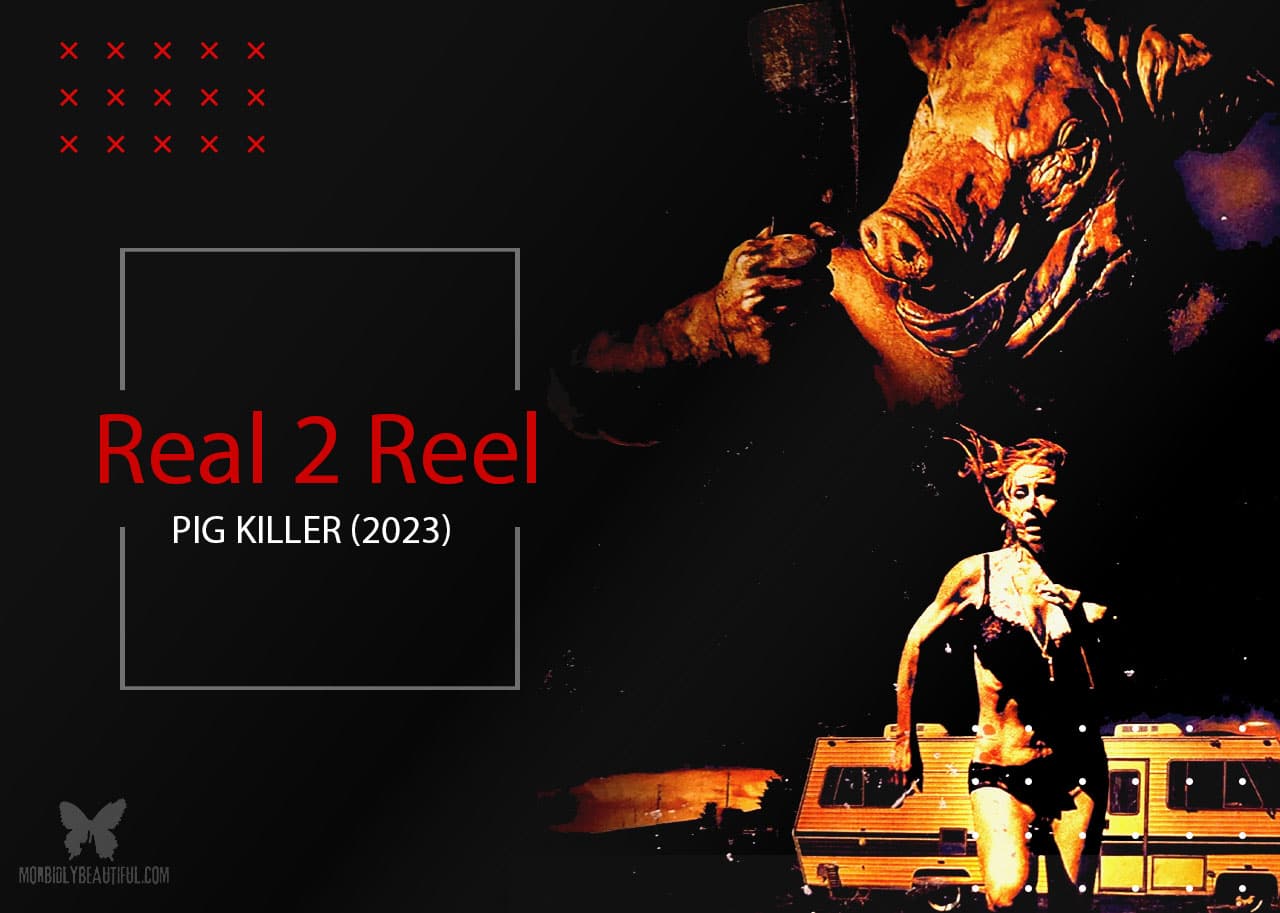
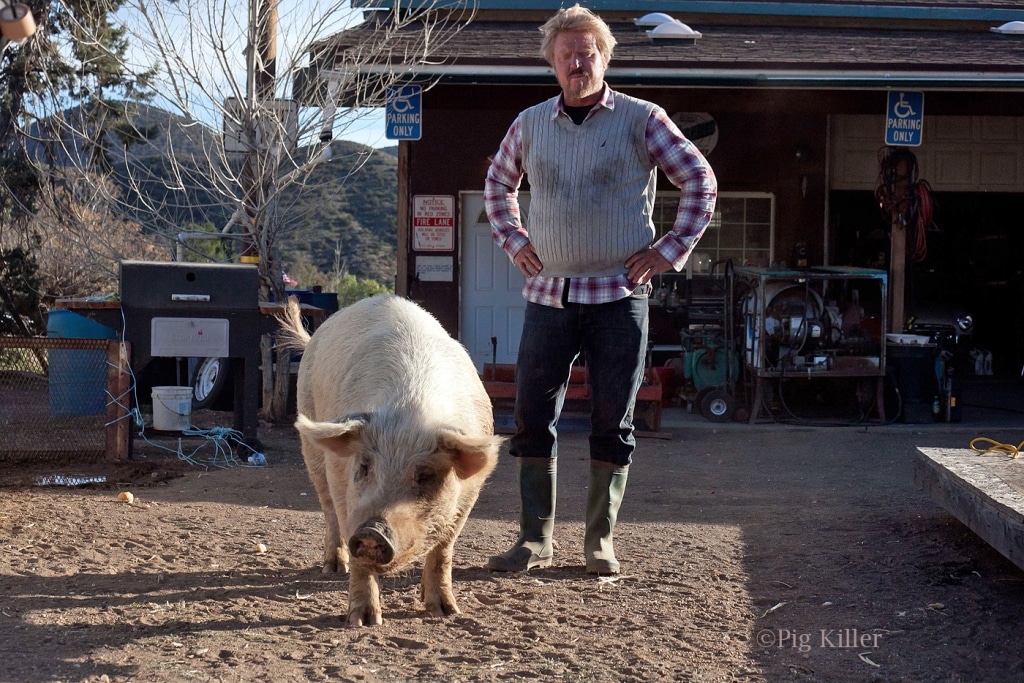
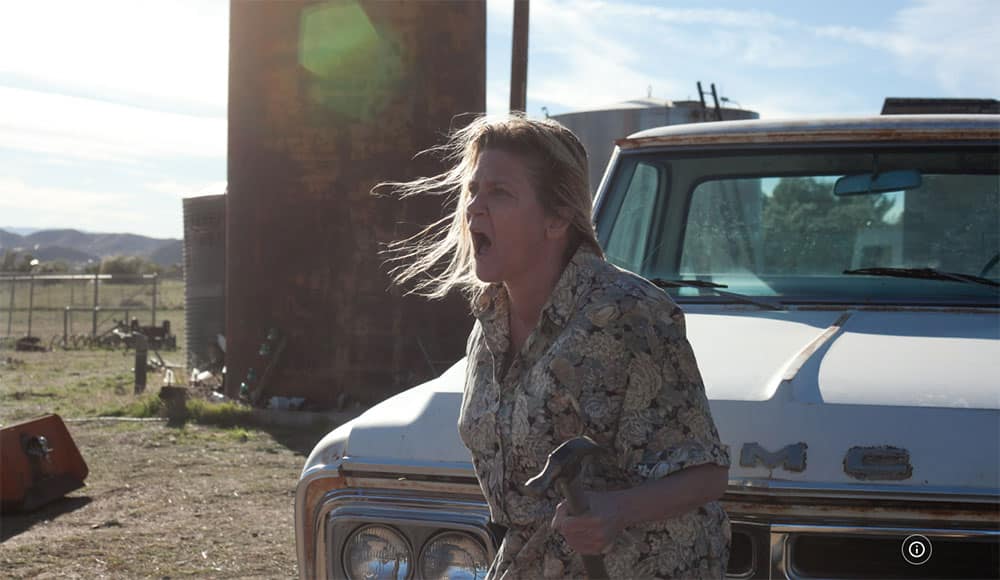
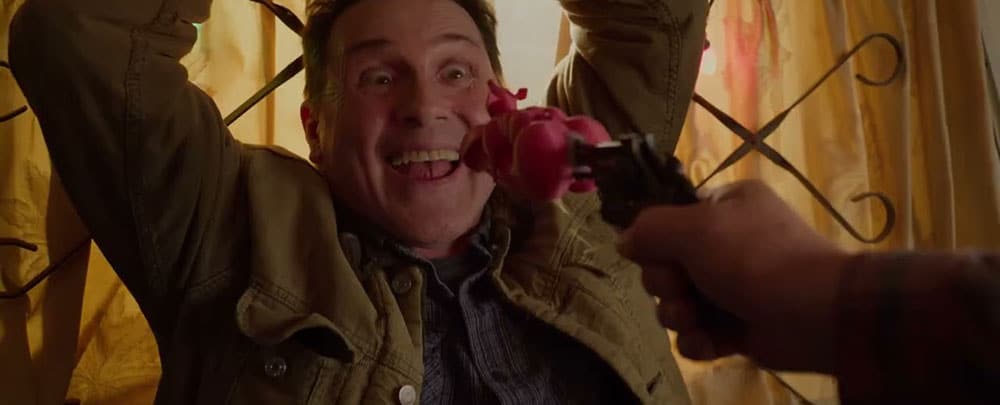

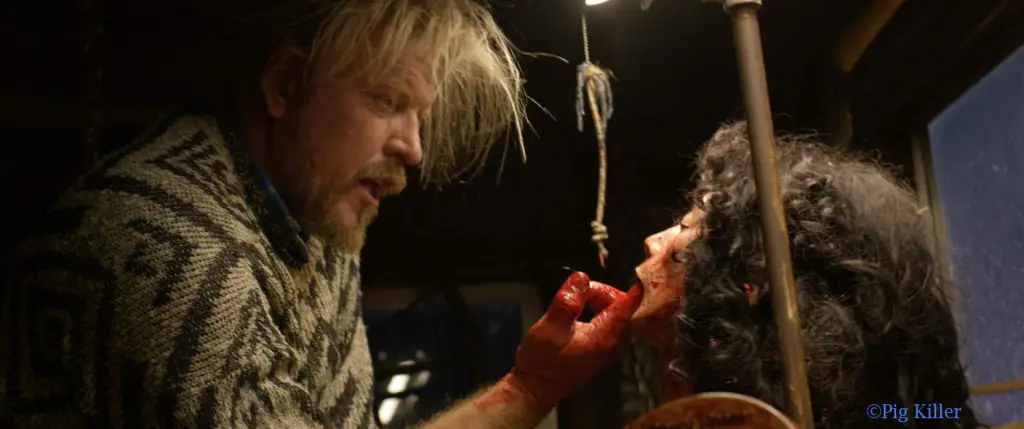
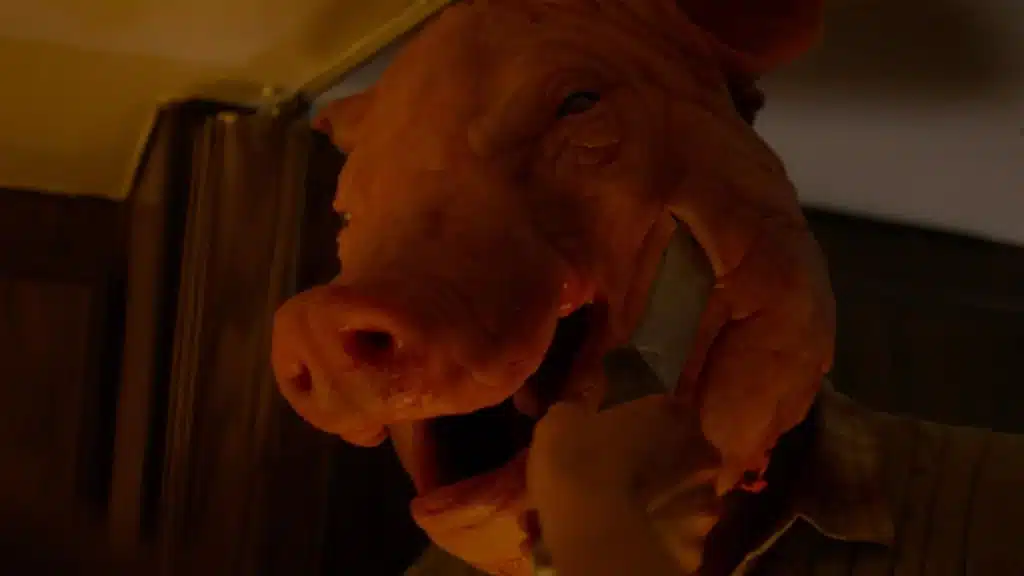
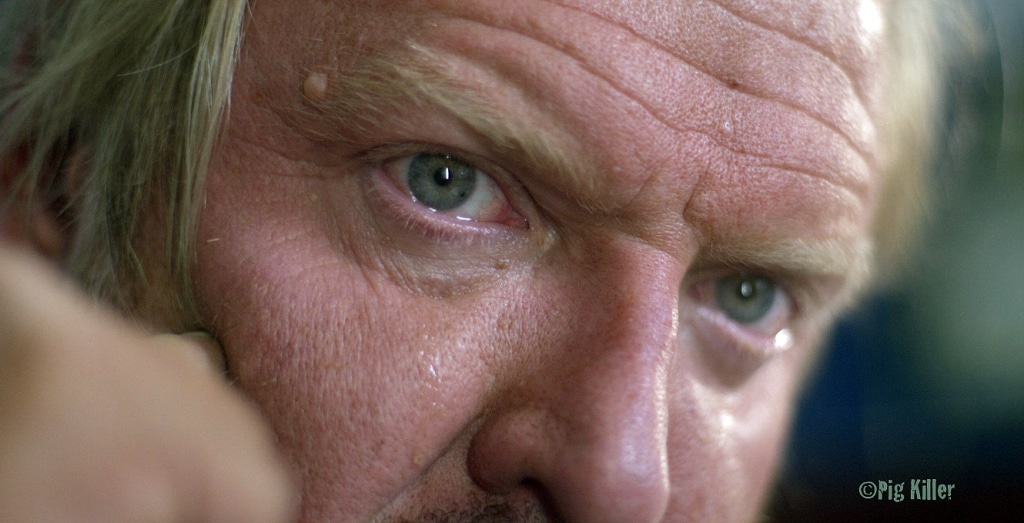













Follow Us!